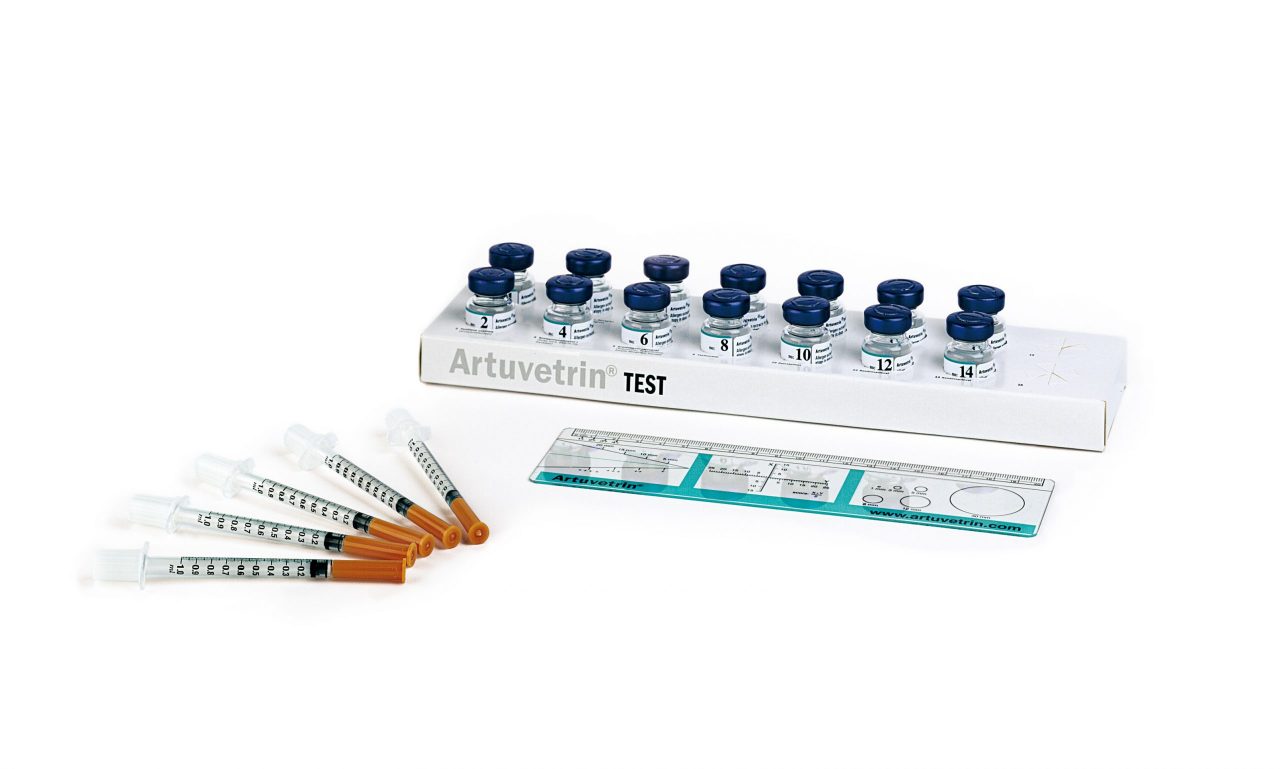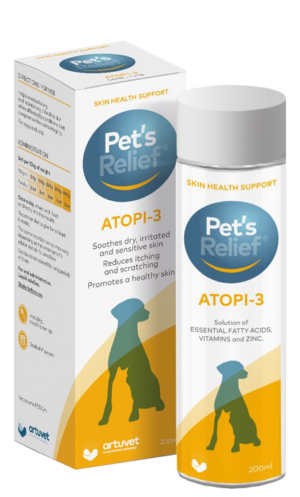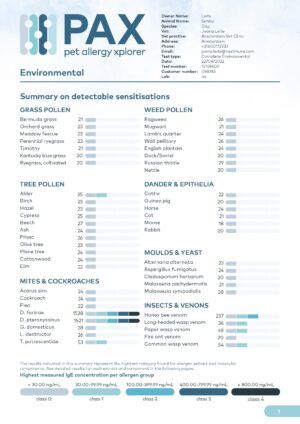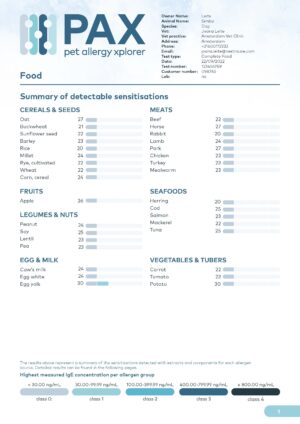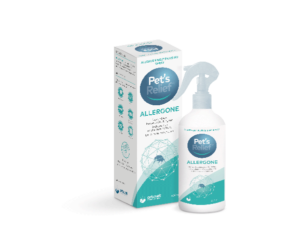The Artuvetrin® Skin Test determines which substances a dog is allergic to, by injecting small amounts of different allergens into the skin (subcutaneously). It is then possible to evaluate whether or not a local reaction has developed at the injection site. Before carrying out the skin test, any medication that might affect the results (including prednisone, cyclosporin and antihistamine) must be discontinued for 2–6 weeks.
Key facts about Artuvetrin® Skin Test
- 80 individual allergens or mixtures available
- Supplied in 3-ml vials (sufficient for 60 tests)
- Shelf-life of 6 months
- Supplied within 8 working days
- Concentrations based on determined threshold values for reliable results
Skin test interpretation
he skin reactions are measured after 15–20 minutes, and any increase in the size of the wheal is measured using a ruler. The response to the negative control is generally 0 mm.
Skin-wheal diameters measuring more than half the wheal diameter of the positive control are considered to be positive results. (That is, half the diameter of the positive wheal minus that of the negative wheal.) When evaluating positive reactions, the size and configuration of each wheal is important, but it also important to verify whether the specific allergen is of relevance in the patient history.
FAQ
1. What is the expiry date of the Artuvetrin® Skin Test after breaking open the vial
The expiry is determined by the stability of each specific allergen. Specific expiration dates are stated on each label.
2. What is the waiting time for performing the Artuvetrin® Skin Test after treatment with steroids, cyclosporin or antihistamines?
Certain veterinary drugs can interfere with the skin test. Any antihistamine or glucorticosteroid medications must be discontinued for at least 2 weeks before testing (and at least 6 weeks for depot preparations).1
Olivery, et al. Evidence-based guidelines for anti-allergic drug withdrawal times before allergen-specific intradermal and IgE serological tests in dogs. Vet Derm 24 (2013) 225–232.
3. Which types of sedation may be used for the Artuvetrin® Skin Test, and which cannot be used?
The skin test is, in principle, not painful, therefore analgesics (anaesthetics) are not needed. Sedation is enough, but the type of sedative must be chosen carefully.
Those that do not affect the results are:¹
- Xylazinehydrochloride (including Sedazine)
- Medetomidine (including Domitor)
- Tiletamine hydrochloride/zolazepam hydrochloride (including Zoletil)
- Halothane
- Isoflurane
Those that do affect the results are:
- Xylazinehydrochloride/ketamine hydrochloride
- Ketamine hydrochloride (including Keta-ject)
- Diazepam
- Acepromaxinemaleate (Neurotranq)
- Propofol
¹The ACVD Task Force on Canine Atopic Dermatitis (XVII): Intradermal testing. Vet Immun Immunopath 81 (2001) 289–304.
4. How do you interpret an Artuvetrin® Skin Test when the negative control is not 0 mm?
If a negative control is more than 0 mm, it must be compensated for using the following formula:
(Negative control + positive control) / 2
For example:
- Negative control: 6 mm
- Positive control: 14 mm
- (6 mm + 14 mm) / 2 = 10 mm
All results equal or above 10 mm are positive.
5. Which drugs can be administered without affecting the results of the Artuvetrin® Skin Test and serum test?
As far as we know, the following medication can be administered to dogs or cats without affecting the results:
- Oclacitinib
- Lokivetmab
- Antibiotics
- Anti-fungal agents
- Heartworm drugs
- Anti-flea agents and devices
- Thyroid medications
- Heart medications
- NSAIDs
This means that the use of the above medications can be continued as normal.
6. Can cats be tested with the Artuvetrin® Skin Test and treated with Artuvetrin® Therapy?
In cats, the pathogenesis of skin problems due to undesirable reactions to allergens in the environment is largely unknown. Therefore, the reliability of the skin test in cats is unclear. The use of immunotherapy in cats is associated with significant improvements in clinical signs (60–70% of cats see improvement)¹. These findings are supported by the experience of some vets using immunotherapy in cats.
¹Efficacy of hyposensitisation in feline allergic diseases based upon the results of in vitro testing for allergen-specific immunoglobulin E. J Amer Animal Hosp Assoc 33(3), 282–288.
